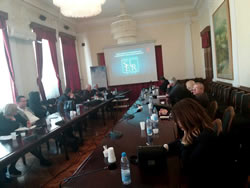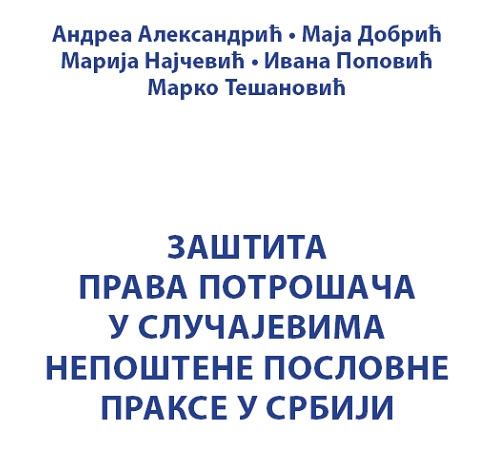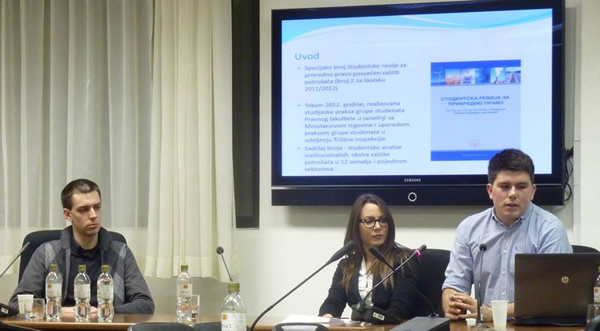THEMATIC STUDIES
In addition to regular issues, publishing papers on various topics related to the legal framework of economic activities, thematic issues of the Student Economic Law Review are results of thematic collaborative research groups, composed of students of mainly undergraduate studies, with some input of postgraduate students. Older students mentor and supervise younger students, together with Editor-in-Chief, and act as collaborative research coordinators. Thematic issues are value added component of our journal, as students engage in a partnership with institutions of public administration and other stakeholders and provide thematic studies as inputs in the regulatory process. We are focused on increasing transparency of the regulatory process, which by itself presupposes the understanding of the issue in question and relevant policy options, we are trying to identify and spread the knowledge and interest of the public. Here we will present our thematic issues in brief.
 |
FOURTH THEMATIC ISSUE ON REGULATING DISTRICT HEATING
On the occasion of celebrating the World Consumer Day, the Regional Chamber of Commerce in Nis, in cooperation with the Consumer Center "FORUM", Public Utility Company "Medijana Niš" and the Business Association of Municipal Services "KOMDEL", a round table on "Consumer interests in the transformation and privatization of utility companies " took place in Nis on March 16, 2017. The editorial board of the Student Economic Law Review was also represented at the round table. A new special number, entitled "Regulatory framework for district heating" was presented. The third year student Petar Blagojevic, as a member of the Editorial Board, presented numerous topics of interest to both consumers and policymakers, in the first place Local self-government bodies. Presentation of our new issue has drawn an interest of the representatives of the mentioned organizations.
|

THEMATIC ISSUE No. 3. Consumer Protection related to Unfair Business Practices
The third thematic issue was prepared for the Ministry of Internal and External Trade and Telecommunications, and represent a study on unfair business practices, aimed to assist traders in their attempts to comply with the Law on Consumer Protection, and also to inform consumers how to discern normal from unfair business practices. It is published at the official Government/Ministry’s web page dedicated to consumer protection and acknowledged by consumer organizations.
Download pdf

THEMATIC ISSUE No. 2. Legal regimes for the acquisition of ownership of agricultural land acquisition
Second thematic issue was widely noticed in public due to the importance of this topic in Serbia. Students assisted the Government’s Negotiation Team for EU accession, within Negotiation Chapter 4 – free movement of capital. The analysis which was produced for the Agricultural Land Administration on the regulatory regimes of land ownership by foreigners in many EU countries and several countries out of the EU was undertaken by a group of twenty five students. This special issue was followed by a documentary film produced by students on the same topic (published on YouTube and shared through social networks), where they explained, in a simpler than legal language, what are policy options in liberalization of the land ownership regime. This study reached many associations of agricultural producers and even members of Serbian Parliament, and was used by some of them in the process of proposing amendments to the Draft Law amending Law on Agricultural Land.

THEMATIC ISSUE No. 1. - Consumer protection strategy
Our pilot issue was a first example of collaborative research on selected framework topic, however without older students supervising younger. It was related to the institutional framework of consumer protection bodies in Europe, and it served to identify best practices in analyzed regulatory regimes. It was produced for the EU funded Project on Strengthening Consumer Protection in Serbia, whose beneficiary was Ministry of Internal and External Trade. In preparing this research, students took an indirect role in drafting the National Strategy of Consumer Protection 2013-2017. This issue was publicly presented at our Law School, and many representatives of consumer organizations attended the presentation.


